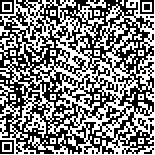| 潘 腾,汪治宇.外泌体介导肿瘤产生化疗耐药的机制[J].中国肿瘤,2022,31(2):146-153. |
| 外泌体介导肿瘤产生化疗耐药的机制 |
| The Mechanism of Tumor Resistance to Chemotherapy Mediated by Exosomes |
| 投稿时间:2021-10-27 |
| DOI:10.11735/j.issn.1004-0242.2022.02.A010 |
|
 |
| 中文关键词: 外泌体 化疗耐药 药物转运体 免疫 凋亡 上皮—间充质转化 |
| 英文关键词:exosome chemotherapy resistance drug transporters immune apoptosis epithelial-mesenchymal transition |
| 基金项目:国家自然科学基金面上项目(81872101) |
|
| 摘要点击次数: 1230 |
| 全文下载次数: 383 |
| 中文摘要: |
| 摘 要:在肿瘤的治疗中,耐药是一个严峻的挑战。外泌体是细胞释放的直径为40~150 nm的膜状囊泡,通过传递mRNAs、miRNAs、DNA和蛋白质介导细胞间的通讯,从而导致耐药。它们通过向药物敏感细胞转移药物转运体,传递抗凋亡信号或增加DNA修复等方式介导治疗耐药性。更好地了解外泌体介导肿瘤产生化疗耐药的机制,有助于发现新的治疗靶点和改进现有的抗肿瘤策略。 |
| 英文摘要: |
| Abstract: Drug resistance is a daunting challenge in the treatment of cancer. Exosomes are membranous vesicles with a size of 40 to 150 nm in diameter released by cells, which mediate cell-to-cell communication by transferring mRNAs, miRNAs, DNA and proteins. They can lead to drug resistance to chemotherapy through transferring drug transporters to drug-sensitive cells, transmitting anti-apoptotic signals or increasing DNA repair. To understand the mechanisms involved in the resistance to chemotherapy of exosomes is conducive to the discovery of new therapeutic targets and improvement of current anticancer strategies. |
|
在线阅读
查看全文 查看/发表评论 下载PDF阅读器 |